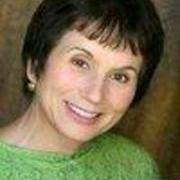Hundreds of people have asked me why someone develops an eating disorder. Of course many issues are involved, but from my exploration of this field over the years, I have concluded that there is one outstanding theme that runs through every person with an eating disorder whom I have encountered.
Early in their lives, people with eating disorders have experienced, on a sustained basis, relentless boundary invasion on every level.
When their physical, emotional, psychological, intellectual, sexual, and creative boundaries are consistently ignored and penetrated, people experience total boundary invasion. With no control and no way to end, protest, or, often, even acknowledge such invasions, these persons feel helplessness, despair, and a certainty that they are worthless to themselves or anyone else.
The consequences of such total invasion are vast. One consequence is an eating disorder. Having had so many boundaries disregarded, a person has no knowledge or skills in recognizing or honoring boundaries herself. She will eat or starve for emotional relief.
She may eat vast amounts of food for comfort value alone. She may deprive herself of food until her life is in danger. She has no internal regulator that tells her when she has reached her limit and experienced enough. Being oblivious to any boundaries means being oblivious to limits of any kind.
The compulsive overeater eats whenever and whatever she likes. She bases her choices on self-medication issues, not feelings of physical hunger.
The anorexic will not eat. There is no limit to her not eating. She will starve herself to death in search of relief from her emotional pain. She knows nothing of the experience of having enough. She couldn't say, "Enough," to an invader of her boundaries, and she can't say it to herself. The concept of enough has no meaning to her. She often feels that if she "disappeared," she might find some permanent relief.
I have heard countless anorexic young women talk ethereally, with a lost-in-a-beautiful-world-of-angels smile, of how wonderful it would be to become a vapor or a light dancing spirit in the clouds. Ah, such spiritual bliss, they imagine. In reality, it's the final self-protective act, to destroy their bodies and their lives completely. Then they can truly escape the complexities of being alive.
The bulimic will binge grotesque amounts of food. She will assault herself with more food than her body can tolerate.
The compulsive overeater will, at last, have to stop eating if only because of the pain in her distended stomach. Her body sets a final limit. The bulimic has no such limit. She experiences (in her mind) no consequences of the food assault on her body. When her body cannot bear more, she will vomit it all out. Then she will resume her binge. She may reach her body's limits many times. Each time she does, she can throw up again and continue.
Eventually she stops, because she is completely exhausted, or she is in danger of being discovered. "Enough" has no meaning to her. There are no limits and no consequences for her disregard of her boundaries.
Realistically, of course, there are plenty of consequences. Her behavior inflicts serious damage to her body. And each time she attacks herself with a binge-and-purge episode, she destroys more of her spirit, soul, self-esteem, sanity, health, and value to herself and others.
Each violation deepens her ritualistic behavior, and she becomes more entrenched in her disorder. The consequence is increasing anguish and despair. Yet the eating disorder is not the cause of that anguish and despair. The eating disorder exists to numb her from her already existing psychological agonies.
For a while, maybe a few years, the eating disorder successfully blocks her awareness of pain too difficult to bear. But eventually the protective device of the eating disorder becomes just another boundary invader, this time self-induced, that weakens and damages her even more.
What do I mean by a history of boundary violations? Blatant and extreme boundary violations involve sexual molestation, sexual abuse, and physical abuse. Much has been written about these areas now, especially in material exploring Post Traumatic Stress Disorder (PTSD) and Dissociative Identity Disorder (DID). Use your search engines to find some quality information posted on the Internet in these subject areas.
However, there are other kinds of boundary violations, and these are less dramatic, less discussed, more prevalent, and just as devastating to a persons psyche. When, in the name of caretaking, people in authority take over a young person's life, it constitutes boundary invasion.
When others deny her privacy, read her diary, borrow or take her things without permission, or use their ideas or goals or personalities to overwhelm her efforts in school or sports, that is a violation of her boundaries.
When others disregard or disdain her choices or deny her any control over her personal life, clothes, food, friends, and activities, they are invading her boundaries.
An invasion of boundaries also takes place when, in the name of caretaking, people give her no responsibilities of her own and attach no consequences to her actions. When the child or adolescent can have all the things she asks for without putting forth effort to earn such gifts, she learns nothing about personal effort, limits, consequences, or the meaning of enough. If she wants something, she gets it. That's all. If someone picks up her clothes, does her laundry, fixes her car, pays her bills, lends her money or things without expecting them returned, she experiences no boundaries and no limits.
If she doesn't have to keep her promises, if she doesn't reciprocate with caring actions for people who care for her, she learns nothing useful about herself in relationship to other people. The only thing she learns with certainty is that there are no limits to her behaviors or desires.
These boundary invasions are not loving acts, nor are they "spoiling" a child through overindulgence. Quite the contrary, they are acts of neglect. The child's taste, mind, capacity to learn, and ability to grow and function as an independent agent in the world remain unacknowledged.
When others, even well-meaning others, ignore her identity as a unique, developing, and competent individual and flood her with their personal agendas, she feels as if a steamroller had flattened out her psyche. She may learn to please, to manipulate, to compete, or to control, but she is unable to learn to be fully present in the world as her genuine self.
She doesn't learn that she has meaning and value. She doesn't learn that she can put that meaning and value within her to work to accomplish goals.
For example, if she breaks something, whether it is a lamp, a car, her word, or someone's heart, it is possible and healthier to give her the responsibility for making necessary repairs using her own resources and her own creativity. In such a process, she learns what effort means. She learns what responsibility and consequences for actions mean. She learns reasonable limits and reasonable expectations. She develops resources to make healthy and caring decisions in the future.
Without such lessons, she learns are the tricks involved in adapting quickly to the expectations of others or being manipulative to get what she wants. These are poor and insubstantial tools to rely on when building an adult life.
Somewhere inside, over time, she may gradually realize this. But without a sense of boundaries, she will only become bewildered and anxious. She will accelerate her practice of using her eating disorder as a way to numb her feelings of anxiety. She will use her manipulating skills to get what she wants from whomever she can exploit.
As time passes, fewer people in her life will allow themselves to be manipulated. The quality of her circle of associates will decline as she seeks people she can control with her inadequate methods of functioning in the world. She will find herself in bad company.
This becomes all the more reason to rely on eating disorder behaviors for comfort. The people around her are less reliable all the time. And finally, they tolerate her presence only because they can manipulate her.
She arrives at the total-victim position. Her manipulative skills backfire. People exist in this world who are better at manipulating and using than she. She has found them. She becomes their target and then their prey. Her dependence upon her eating disorder becomes her most valuable and trustworthy relationship.
Early in her development, she learned through massive boundary invasions (which perhaps seemed ordinary and unimportant at the time) that she was helpless to assert herself. She learned that she had no private or sacred space to cherish and respect. She could not acknowledge, even to herself, that she was being thwarted, invaded, controlled, manipulated, and forced to deny large aspects of her natural self. She had no recourse except to comply.
To succeed at being unaware of her natural tastes, curiosities, and inclinations and her pain in restraining her natural tendencies, she developed an eating disorder. Now that she's older and her manipulation skills are failing her, she only has her eating disorder to rely on. This may be the most crucial time in this person's life.
If her pain and despair are terrible enough and she is certain she cannot bear this way of living anymore, she still has choices. She can continue to rely on the eating disorder and by so doing take the path to self-destruction. Or she can reach out and get help.
This is a tough position for her. She's never known what enough was. Yet to choose to get help, she has to recognize that she has had enough pain. She's never known what a limit is. Yet she has to recognize that she has reached her limit and must choose between death and life. She has only known about pretense and manipulation. Yet she has to be honest to reach out for genuine help.
She feels massive anguish and pain before she stretches beyond her life pattern into what might bring her healing and recovery. She's reaching for something she can't imagine. It's difficult for a person with an eating disorder to decide to get help. She would have to allow herself to trust someone with knowledge of her real personhood.
She doesn't yet know that people who do respect and honor boundaries actually exist in this world. She doesn't yet know that there are people who can and will honor and cherish her most private and sacred inner spaces. She doesn't yet know that someday the trustworthy, respectful, steadfast, and competent caretaker she needs so badly can be herself.
Her first move toward recovery requires all the courage she can muster. Her recovery begins when with fear or rage, she rallies her courage to reach out for help.
Difficult, yes. But what she doesn't know yet is that she has been courageous all her life. She makes a grand discovery when she learns that she can apply her strength and courage to her own health. She can use her gifts to, at long last, be free of her eating disorder, be her genuine self in the world.
Professional Resources for Finding Help
Academy for Eating Disorders (AED)
American Anorexia and Bulimia Association (AABA)
Anorexia Nervosa and Related Disorders (ANRED)
Edreferral.com
International Association of Eating Disorders Professionals (IAEDP)
Joanna Poppink's Eating Disorders Resource List In-Patient Treatment Programs
National Eating Disorders Association (NEDA)
Joanna Poppink, Los Angeles psychotherapist, licensed since 1980 (MFT #15563), is deeply committed to bringing recovery to people suffering from eating disorders.
Her specialized psychotherapy practice is designed to allow clients to progress through anxiety situations to ongoing recovery from bulimia, compulsive eating, anorexia and binge eating. Her primary goal is to provide people with a way to achieve thorough and long lasting healing.
Eating Disorder Recovery book in progress through Conari Press
10573 West Pico Blvd. #20
Los Angeles, CA 90064
http://www.eatingdisorderrecovery.com
[email protected]





Add a Comment206 Comments
Dear Wendy,
You and your family have been through agonizing times. I'm glad to know your son is out of harm's way.
Please tell me, is your comment based solely on my article or are you following the discussion in the comment section?
I ask because the various sharings on this theme have, in my opinion, been expanding perspectives. Eating disorders are painful and disruptive enough.
We don't need or want more heartbreak in patients, parents or, for that matter, treatment providers.
best regards to you,
Joanna
June 6, 2009 - 4:11pmThis Comment
Dear Laura,
Thank you for contributing to this valuable discussion. I continue to hope for more perspectives so we all can get a more encompassing picture of these issues.
In your post you refer to a population of families I and other clinicians may never see. It's possible and probable that more exists than what comes through our offices for treatment.
I, for example, only work with adults who are affected by an eating disorder. I do not work with children.
The stories I hear from my patients, and I've been in practice for almost 30 years, include unconscious and often unintended boundary invasions by parents. These invasions force the child to develop ways to defend herself. Some children cannot defend themselves. Others find various methods of defense, one of which is an eating disorder.
By the time some of these children are adults and bring themselves to treatment, defense patterns are established and, usually, the difficulty with parents continues.
It is possible that the adults who come for treatment received enough love and developed enough self respect to reach out for freedom from an eating disorder. It's also possible that these adults come from families who may be intrusive, even to an extreme, but at the same time love and want to support their child.
It's not unusual for me to see an adult because she wants treatment and her mother found me and made that first referral. And it's not unusual for that very same mother to create, as she always has in her parenting, difficulties that trigger and even undermine the recovery work.
This is not done intentionally. The mother is unaware and caught in her own psychological patterns. But, she still wants the best for her now adult child.
Families run the gamut from insensitive people who do not care about their children to caring and loving people who want the best for their children. I could never make one category for all families.
It may be that Maudsley and F.E.A.S.T. attract families who are sensitive, caring and willing to grow, learn and develop as they learn ways to help their children move to eating disorder recovery. It may be that families who are incapable of cooperating in such an effort are the families that never enroll in these programs or drop out quickly.
It’s a challenge for all of us to look at these issues because we don’t have information about or experience with the people we do not see. But to address the vast topic of eating disorder recovery, we need to be open to what and who we don’t know about.
We may be talking about different kinds of families.
I’d be very interested in hearing your response to this, Laura.
Thank you again for writing.
Best regards,
Joanna
June 6, 2009 - 1:34pmThis Comment
I understand that you work only with adult women. But, in your article, you refer frequently to the experiences of the child within the family setting. All of us were children once. So, even though you work only with adults, you speak of childhood and families. That's in part what I heard and am reacting to.
When you hear the life version of the adult person sitting in front of you, it is a one sided remembrance of an experience involving a number of people. For that person, it may be their reality. However, to really understand their history, their background, their family, you would need to have the whole family present.
Think of nations. We wouldn't just get the perspective of only one country in a situation. We'd look at all angles before drawing conclusions. We'd talk, listen to each other, negotiate. You can't get a full picture without this. And, yes, you may treat adults, but they were once children. I don't see how this article which refers to families and children within it--this philosophy of cause-- only applies to your specific treatment population. I think there can be real pitfalls in the kind of therapy that looks backwards to causation.
June 14, 2009 - 7:18amThis Comment
"Maybe some day there will be an organization for children of parents with eating disorders"
There is: F.E.A.S.T. (Families Empowered and Supporting Treatment of Eating Disorders) www.FEAST-ED.org.
I am deeply saddened by the assumptions made in this post, and some of the responses. I am grateful to the brave mother who so respectfully outlined the facts. Some day I hope we will all look back and see both the error and the tragic cost in clinicians who assume pathology in families. It is disheartening that practicing clinicians would hold these beliefs, and heartbreaking that parents would absorb them.
Boundaries, it seems to me, apply to clinical assumptions as well.
Laura Collins, Executive Director
June 6, 2009 - 12:52pmF.E.A.S.T.
This Comment
Dear Carol,
I applaud your efforts to continue learning and developing. I appreciate your commitment to be the stopping place in a thread in your family legacy that helps perpetuate eating disorders.
Your own therapy work, your willingness to look at yourself and your family with honesty and love and your dedication in providing your daughter with a healthy emotional environment in which she can develop to be the best she can be is wonderful. And, as I know you appreciate, your effort is necessary and challenging.
When something we know is all we know, we don't know options exist. Plus, those options may be available to us only after we do a certain amount of internal growing. Usually in that growing we have to tolerate pain and experience humility as illusions collapse and more reality becomes clear.
Your efforts to learn, not only to break but change the chain, and use your learning and your love to help your daughter, will help many children and adults beyond the limits of your family.
Thank you for your participation, Carol.
warm regards,
Joanna
June 5, 2009 - 2:18pmThis Comment
Joanna-
Obviously this is a very thought and emotion provoking post! As a psychologist who has also worked with eating disorders (and trauma) for over 20 years I found myself nodding as I read along. What I think may be confusing is that not all boundary violations are intentional. Parents are often doing their best, acting with good intentions, perhaps struggling with their own unaddressed childhood issues. The result can be getting out of sync, disconnected and/or overprotective in a way that is harmful. Thank you for illustrating some of the ways this can play out!
I also think the research about anxiety disorders predating the development of eating disorder behaviors can be confusing. What this may overlook is that anxiety often is a reaction to the types of emotional experiences you describe.
Thank you for this thought provoking topic and conversation!
Kathleen Young, Psy.D.
June 5, 2009 - 10:47amwww.drkathleenyoung.com
This Comment
Dear Kathleen,
Thank you for your thoughtful response. I appreciate your sharing your professional experience.
It's agony for a loving parent to see their child ill with any serious illness. To consider that something in the physical or emotional environment may have contributed to that illness may be more than a loving parent can bear.
Yet, to become overprotective could mean that something ignored or about which a person is blind can become even more intensified.
I looked at your website and see that you have a great deal of experience working with people suffering from anxiety, various kinds of abuse and difficult family issues.
Thank you again for adding your voice to this discussion.
best regards,
Joanna
June 5, 2009 - 2:26pmThis Comment
Dear Joanna,
The issue of boundaries has certainly struck a nerve! As I said, all that you wrote makes a lot of sense to me and speaks to my experience. I think that parents can be loving AND violate boundaries with their children. In my grandmother's case with my mother, the intrusion on my mother's sense of self was pretty blatant, my mother's boundary issues with me were more subtle and fell on the side of neglect. In both cases, my mother and I suffer, to varying degrees, from an unstable sense of self and feelings of low self worth. I've worked hard in therapy for years and have made progress. My mother, who never sought treatment for her bulima, often seems like an adolescent to me, stuck in the past with her mom. That's not to say she isn't kind, generous and loving, but her disease, which I see as a mental health issue, has compromised her sense of self, self-efficacy, self-esteem and discovery and fulfillment of her dreams and hugely impacted the quality of her relationship with her daughters.
Now that I am raising my own daughter, I've decided the buck stops with me. I'm interested in the prevention side of things, not treatment so much. My concern is helping mothers with bulimia understand that they can, and likely will, negatively impact their own child's development and increase the risk for passing on an eating disorder. I've lived this and talked to other women in similar situations. So, with my daughter, I see her as her own being and my job is to guide her and help her become the person she is meant to be. I work hard to keep my issues to myself, something I wish my mother had done with me, although I do think she tried.
Maybe some day there will be an organization for children of parents with eating disorders like there is for children of alcoholics. There do seem to be many similarities.
It is very striking to me that the mothers who have commented on this article are so offended and rejecting of the whole boundary issue. Perhaps it hits too close to home or perhaps the nature of anorexia is so frightening that something so intangible as boundary issues seems inconsequential and offensive. Parents need to be held accountable but it doesn't mean they are bad people. Families are ocmplicated and relationship patterns get passed down through generations uncommented on and unacknowledged. My sincere hope is that through my work in therapy and by writing about my experiences that I can stop those patterns from poisoning my daughter's life.
Thanks,
Carol
PS A book that was recommended to me as helpful for children of parents with an ED is called "Children of the Self-Absorbed: A Grown Up's Guide to Getting Over Narcissistic Parents" by Nina Brown. I found it helpful.
June 5, 2009 - 9:53amThis Comment
As a former anorexia sufferer, I am appalled by this article.
My daughter also suffers from anorexia, which started at the same age as mine did.
True experts tell us that genetics and personality traits are two of the major factors that cause ED.
"Boundary issues"?
I can tell you that I myself never experienced any of the things that you talk about - boundary issues, nor abuse nor sexual molestation.
My parents were very loving, as I was a loving parent to my daughter.
This article does more harm than good to sufferers and their families/loved ones.
This does not surprise, however, since I have encountered many 'misguided' therapists over the years.
I hope the professionals take this author to task on this one.
June 5, 2009 - 1:50amThis Comment
I just found this on the Maudsley Parents web site. Although preliminary, this is an encouraging step, so I am passing it on. I am sure there will be more to come.
My daughter is 20 and has anorexia nervosa. So far, counseling hasn't helped. She was too sick and depressed to stay at college so we brought her home. We'd like to try family-based treatment and she says she doesn't want to go to a treatment center. Is she too old for this to work?
Angela Celio Doyle, PhD responds:
There is no clear first-line treatment for adults with anorexia at this point in time. However, there is initial support for the Maudsley approach with college-aged individuals. The National Institute of Mental Health highlights three important components in treatment of adults:
1. weight restoration
2. treating the psychological issues related to the eating disorder
3. reducing or eliminating the behaviors or thoughts that lead to disordered eating, along with relapse prevention
The Maudsley approach for young adults fits these criteria and is based on the premise that parents continue to play a major role in their child’s life even when their child is a young adult; this role might involve emotional support and guidance or it could be financial (i.e., parents pay for college). This situation provides an opportunity for parents to help their child recover, although careful attention needs to be paid to their healthy psychosocial development as an increasingly independent young adults.
In a recent case series at The University of Chicago, a small number of young adults were provided the Maudsley approach with some modifications based on their age. The results were positive, overall, with the majority of the patients recovering and returning to school at short-term follow-up. Additionally, the patients and their families reported positive feelings towards the treatment approach. A paper describing the results of this case series is in the process of being reviewed for publication by the International Journal of Eating Disorders. Because this form of the Maudsley approach is still being developed and refined, your best bet would be to seek out treatment with a trained and experienced Maudsley therapist who would be willing to adapt the treatment to an older individual. Additional research using randomized controlled trials will need to be done to determine whether this approach is the best treatment for young adults, however.
anne
June 4, 2009 - 8:43pmThis Comment